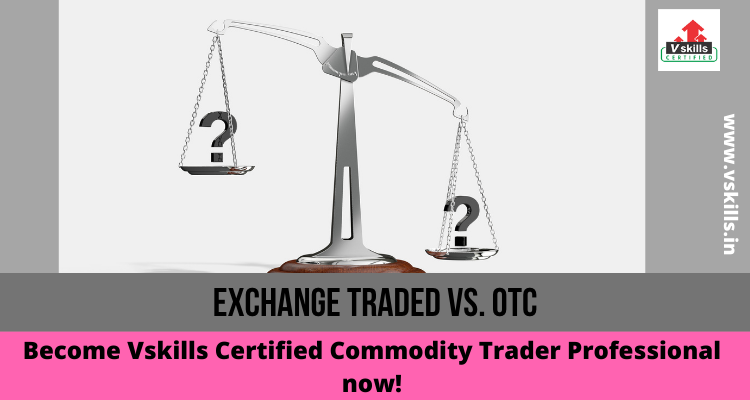Exchange Traded Vs. OTC
Let’s learn the difference between Exchange Traded Vs. OTC. An exchange-traded fund is a type of investment fund and exchange-traded product, i.e. they are traded on stock exchanges. ETFs are similar in many ways to mutual funds, except that ETFs are bought and sold throughout the day on stock exchanges while mutual funds are bought and sold based on their price at day’s end. The OTC derivatives markets have different features when compared to exchange-traded derivatives:
- Counter-party (credit) risk is decentralized to manage it and it is controlled within an individual organizations.
- Centralized limits on individual positions, leverage, or margining are not present.
- For risk and burden-sharing, there are no formal rules and regulations to guide operations.
- There are also no mechanisms for ensuring market stability and integrity, and for protecting the interests of all the participants.
- The OTC contracts have the exchange’s self-regulatory organization for supervision but no formal regulatory body of the exchange. There is no regulation even though they are affected indirectly by national legal systems, banking supervision and market surveillance.
- The inter-bank foreign exchange market is the largest derivative market. In other global locations, traders are more oriented toward exchange-traded derivatives.



